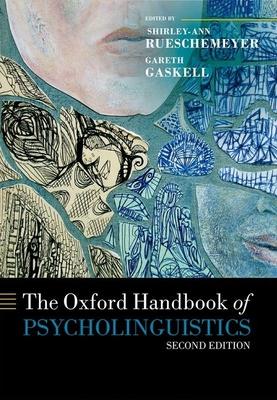The ability to communicate quickly and flexibly through both spoken and written language is one of the defining characteristics of the human race. Yet it remains a mysterious process. The science of psycholinguistics attempts to uncover the mechanisms and representations underlying human language. This interdisciplinary field has seen massive developments over the last decades, with a broad expansion of the research base, and the incorporation of new experimental techniques such as brain imaging and computational modelling. The result is that real progress is being made in the understanding of the key components of language in the mind.
This new and expanded edition of The Oxford Handbook of Psycholinguistics brings together the views of over 80 experts in various domains of psycholinguistic research, offering a comprehensive and authoritative review of the field. With contributions from the fields of psychology, linguistics, cognitive neuroscience, attention, genetics, development, and neuropsychology divided into five themed sections, this new edition of The Oxford Handbook of Psycholinguistics is unparalleled in its breadth of coverage.
The comprehensive nature of this book coupled with the accessibility of the short chapter format makes this handbook essential reading for students and researchers in the fields of psychology, linguistics and neuroscience.
| FindBook |
|
有 1 項符合
rueschemeyer的圖書 |
 |
$ 9900 | The Oxford Handbook of Psycholinguistics
作者:Rueschemeyer 出版社:Oxford Univ Pr 出版日期:2018-10-23 語言:英文 規格:精裝 / 18.4 x 25.4 x 5.7 cm / 普通級/ 再版  看圖書介紹 看圖書介紹
|
|
|
圖書介紹 - 資料來源:博客來 評分:
圖書名稱:The Oxford Handbook of Psycholinguistics
|









